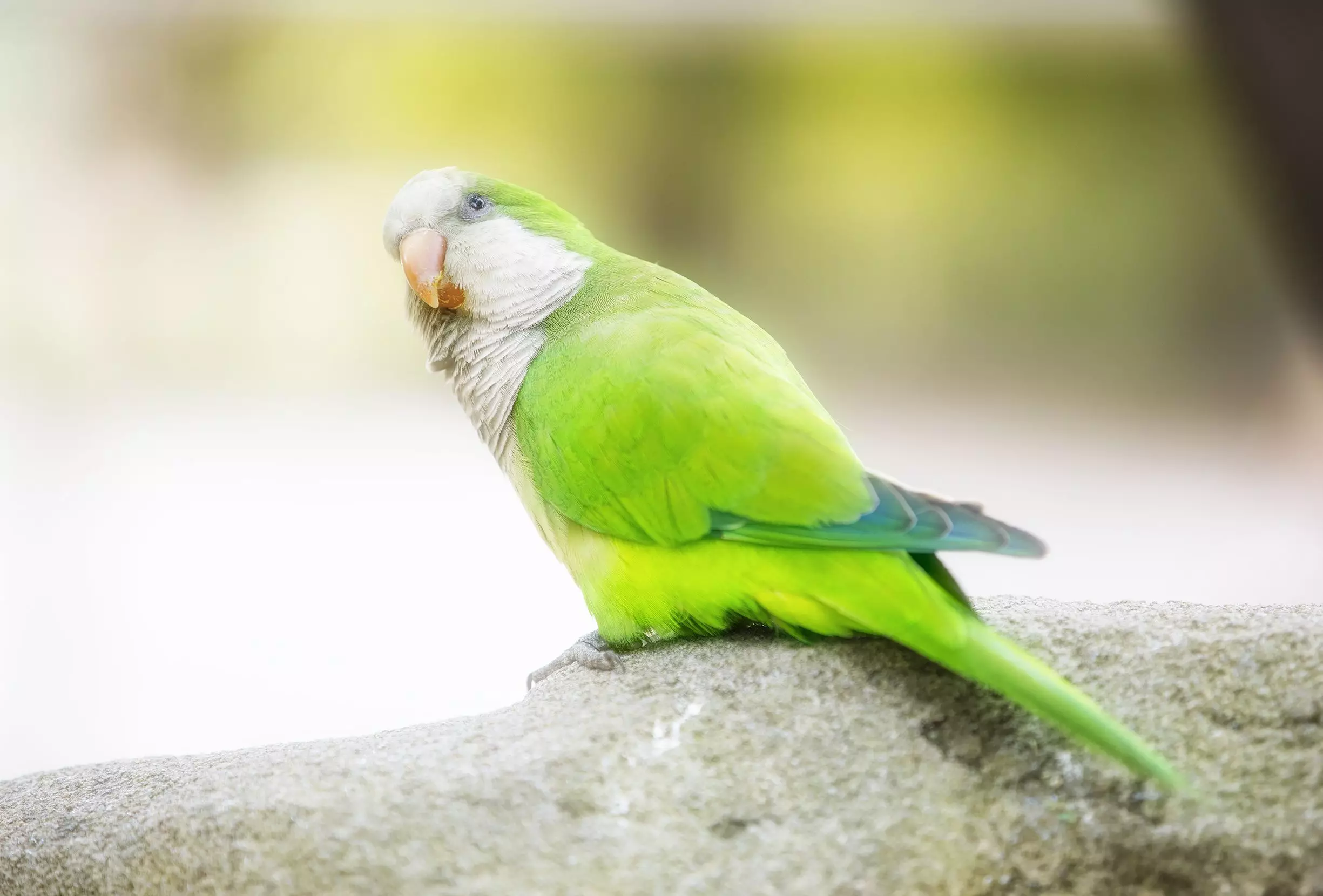Known for their distinct charm and engaging personalities, Quaker parrots, scientifically classified as *Myiopsitta monachus*, are often referred to by various names such as monk parrots and Quaker parakeets. The terms “Quaker” and “monk” arise from the birds’ physical appearance—the gray feathering at the neck resembling the bibs worn by Quakers and the hood-like coloration on their heads mimicking a monk’s robe. However, many people believe the name derived from their characteristic “quaking” movements when they experience excitement or irritation, particularly when they’re young and begging for food.
Quakers can have a remarkable lifespan, typically ranging from 20 to 30 years, with some individuals exceeding the 30-year mark under optimal care. This longevity indicates that anyone considering welcoming a Quaker parrot into their home should be ready for a long-term commitment and develop a well-structured plan for their care throughout their lifetime.
Quaker parrots are inherently social creatures, known for forming strong attachments with their owners. This trait makes them less suited to frequent relocation or new environments, as instability can lead to stress or behavioral issues, such as feather plucking. When they feel neglected, their instinctual reactions may manifest in aggression or unhealthy habits, highlighting the importance of consistent social interaction and engagement.
Potential bird owners should consider that Quaker parrots thrive in environments where they receive ample socialization. Without it, their well-being may be compromised. For individuals looking for an interactive pet, a Quaker may be the ideal choice due to their affectionate nature and the strong bonds they create.
One of the standout features of Quaker parrots is their ability to mimic human speech. While not every individual exhibits this trait, many achieve impressive linguistic skills, often rivaling larger parrot species in clarity and vocabulary. Their capacity for vocal mimicry makes them particularly appealing for those seeking a talking bird. Owners frequently describe their Quakers as talkative and entertaining, though they are less likely to produce the shrill cries associated with some larger parrot breeds.
However, individuals contemplating adopting a Quaker should prepare for the bird’s vocal presence, as they can be quite chatty. Despite lacking the piercing screams of other species, they prefer to make their voices heard.
While many may be deterred from adopting birds due to misconceptions about space requirements, Quaker parrots challenge this notion. At approximately 11 to 12 inches in length and weighing between 3 to 5 ounces, they are classified as medium-sized birds. Although Quakers need a spacious environment, they can adapt well to smaller enclosures compared to larger species like macaws, provided they receive sufficient out-of-cage time for play and exercise.
Housing is crucial—Quaker parrots are known for their chewing habits and their ability to figure out how to open cage doors. Thus, ensuring that their cages are sturdy and free from materials that could cause harm is vital. Additionally, these birds have a natural instinct to build nests. Providing appropriate, bird-safe materials for crafting nests can stimulate their creativity and reduce boredom.
Monitoring the diet of a Quaker parrot is essential, as these birds can easily become overweight if overfed. A balanced diet should consist of high-quality pellet and seed combinations complemented by fresh fruits, vegetables, and an occasional nut treat. It’s vital to be cautious with fatty treats to avoid rapid weight gain and associated health issues.
Additionally, when welcoming a new Quaker into your home, it is normal for them to experience initial anxiety. Giving them time to acclimate—which can include sitting by their cage, speaking softly, and offering treats—can ease their transition into their new environment.
Before deciding to purchase a Quaker parrot, potential owners must be aware of legal restrictions that exist in certain states. Quaker parrots are banned in states such as California, Georgia, and Kentucky, primarily due to concerns about their impact on local ecosystems. Therefore, it is essential to research local regulations before making a decision.
Financially, the cost of acquiring a Quaker parrot typically ranges from $300 to $600, not including additional expenses like shipping and veterinary visits, which can vary significantly. These considerations are crucial in evaluating whether you are ready for the commitment involved in bringing a Quaker parrot into your home.
Quaker parrots can be excellent companions for those willing to invest time and effort into their care. Their engaging personalities, vocal talents, and social natures make them particularly delightful pets. With thoughtful preparation regarding their dietary needs, socialization requirements, and housing conditions, prospective owners may find themselves with a loyal and affectionate avian friend for many years to come.


Leave a Reply